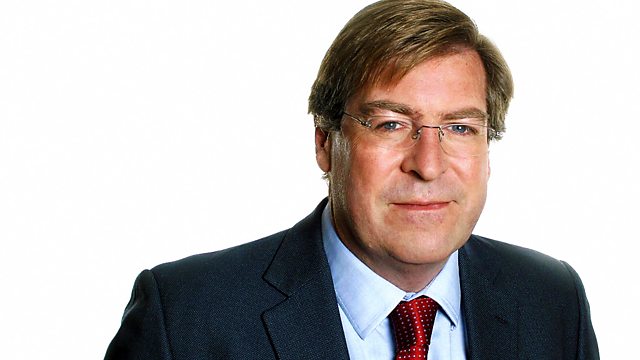
Press freedom in the 1970s
Edward Stourton revisits broadcast debates from the archives, exploring the conflict between two media men over press freedom at the time of the thalidomide case and Watergate.
Edward Stourton continues to revisit passionate broadcast debates from the archives - exploring the ideas, the great minds behind them and echoes of the arguments in present-day politics.
Two media men clash over press freedom in Britain. Harold Evans, campaign editor of the Sunday Times, appeared on Βι¶ΉΤΌΕΔ2 in 1974 to the backdrop of two major controversies in the newspaper business - Watergate and thalidomide. He met Lord Windlesham, pillar of the Tory establishment. Evans was furious that British media law prevented him reporting the cases of the victims of the morning sickness drug thalidomide, for whom he was determined to win fair compensation. In stark contrast, the other side of the Atlantic had seen President Nixon brought to justice by the Washington Post. Could Watergate have happened in the UK? Or would our laws, such as contempt of court, libel and Official Secrets Act, have restricted this course?
Windlesham, however, took a more conservative line, that existing legislation was in place to curb the excessive powers of a press that wasn't very good at taking criticism. Evans later secured victory for thalidomide victims at the European Court of Human Rights. But more than 40 years after this discussion, in a world of Wikileaks and super-injunctions, how does the contemporary media landscape compare?
In the studio dissecting the debate are Peter Preston, editor the Guardian for 20 years and now a columnist at the paper, and John Kampfner, who has worked in newspaper, broadcasting and magazine journalism and is now the chief executive of the Index on Censorship.
Producer: Dominic Byrne
A Blakeway production for Βι¶ΉΤΌΕΔ Radio 4.
Last on
More episodes
Broadcast
- Mon 22 Aug 2011 09:30Βι¶ΉΤΌΕΔ Radio 4
